Nigeria's government is pushing more people to invest in the country's agriculture sector which was once a top source of employment in the 1960s. The country wants to diversify from oil reliance as well as ease the rising cost of living. In the north, one company is working to boost the dairy sector and promote locally made milk and yoghurt but faces stiff challenges.
Dairy processing has been declining over the years in Nigeria leaving just a few companies like L&Z still barely managing to stay afloat as they grapple with infrastructure challenges, and competition from the imported cheaper products.
The L&Z factory was started in 2006 with a capital of about 1,200 dollars and targets Fulani cattle herders who bring in their milk for sale. Today it has grown to have a processing capacity of 20,000 litres of milk per day. The plant also processes yoghurt as well but officials says its been difficult trying to grow the business.
"We have the capacity to produce enough to feed not only Nigeria but the entire West African sub-region. What is lacking is harnessing the milk at the right quantity, the right quality, and delivering to the processing plant at the right time," said Muhammed Damakka Abubakar, the chief executive, L&Z Integrated Farms Limited.
Africa's dairy industry produced around 17 million tonnes of products in 2014, of which around 7 million were made from imported milk, according to the International Farm Comparison Network (IFCN), which promotes knowledge of global dairy.
Demand for milk in Africa is expected to grow sharply in the next decade due to population growth and rising incomes, leading to an increase both in production and imports.
Nigeria's Fulani cattle herders supply most of the milk here. They are known to roam in search of pasture and water for their animals. Hundreds have been killed in the past in clashes pitting the cattle-herding and largely Muslim Fulani people against mostly Christian settled communities in Nigeria's volatile northeast.
Most of them collect their milk in difficult conditions without proper facilities or equipment.
Fulani herders also note that poor grass quality has lead to low milk production, lack of storage and processing equipment and poor cooling facilities also hampers milk trade.
Lack of proper cooling systems make it impossible for proper milk storage and farmers often face losses.
To help farmers improve on their business L&Z now goes out to their homes to collect milk. Twice a week, they collect fresh milk, which is also tested before being weighed and purchased.
While more up-market areas have a ready market, poor infrastructure and transport networks also compound the cost of doing business.
Electricity access and machinery needed to improve efficiency remains unattainable for many farmers in the country. Power cuts often cause losses for many milk suppliers.
The power grid provides barely four hours of power a day.
Link to the video:


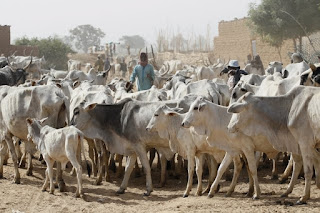
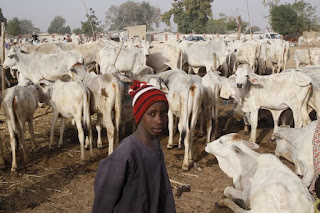

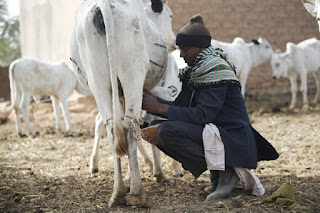
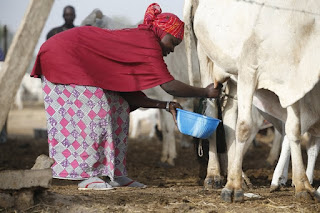
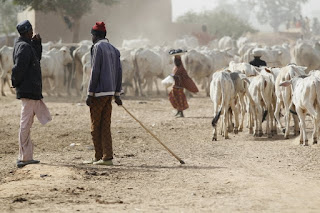
No comments:
Post a Comment